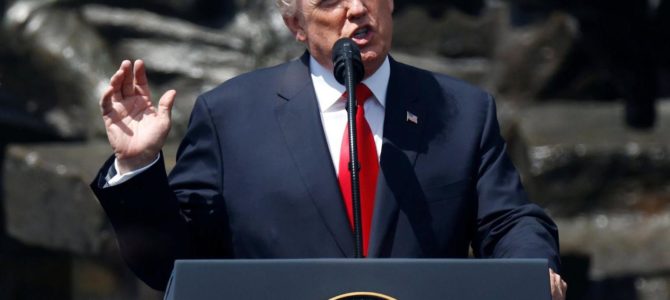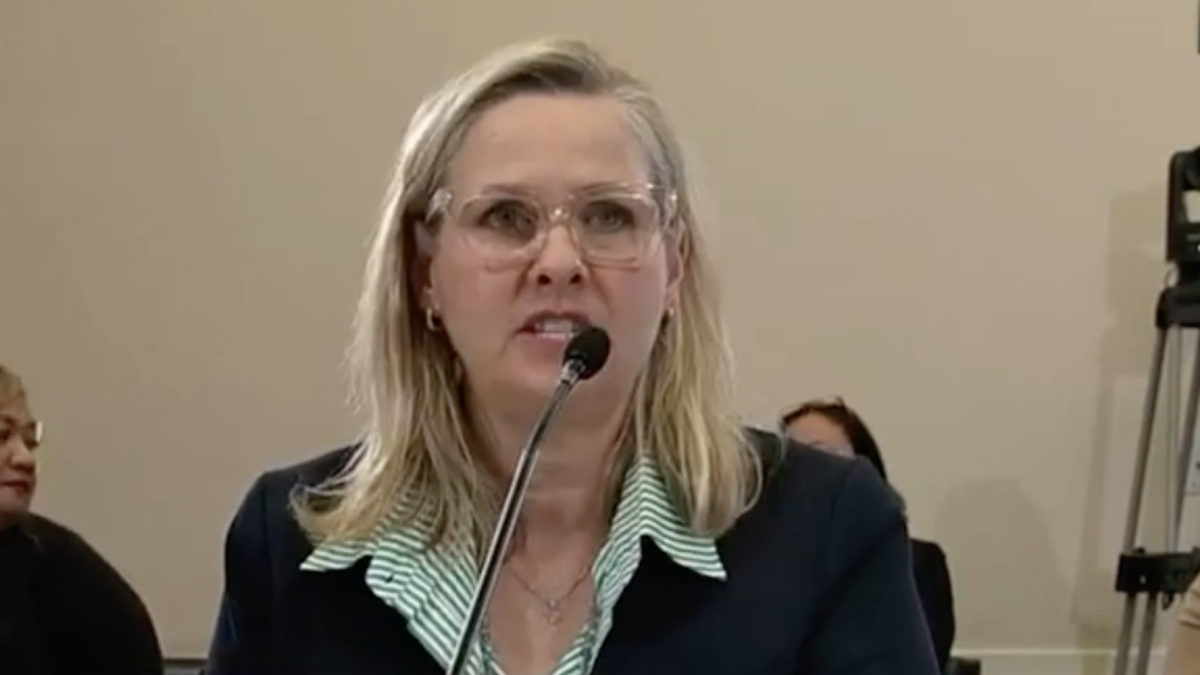
After Donald Trump’s speech in Warsaw today, Vox ran a piece written by Sarah Wildman that was headlined “Trump’s speech in Poland sounded like an alt-right manifesto.”
Here is the lede:
This morning in Warsaw, Poland, President Donald Trump issued a battle cry—for “family, for freedom, for country, and for God”—in a speech that often resorted to rhetorical conceits typically used by the European and American alt-right.
Does the phrase “for family, for freedom, for country, and for God”—which was not only highlighted in first paragraph, but in the subhead of the piece, as well— strike you as a “rhetorical conceit” used by the alt-right? Perhaps. What I do know that it’s also been the rhetorical conceit used by every president in the history of the United States. No, I’m not saying an American has to celebrate all these concepts, but to act as if this was atypical rhetorical framing of our values is nothing more than revisionism.
Yet, the horrors of Trump’s speech do not end there.
Although the president “addressed Russia, and NATO,” Wildman says the “real takeaway” of the speech was his aggressive tenor. So while Trump may have finally affirmed the U.S. commitment to NATO’s Article 5, and urged Russia “to cease its destabilizing activities in Ukraine and elsewhere,” including Syria and Iran, the underlying tenor was supposedly Alt-Rightian because of all the huffing and puffing about Western values. Wildman keeps intimating that Trump’s speech should be offensive to you, without ever really offering any concrete example as to why – other than his instance that the West is best. For instance:
In his address, Trump cast the West, including the United States and Europe, on the side of “civilization.” With an undercurrent of bellicosity, he spoke of protecting borders, casting himself as a defender not just of territory but of Western “values.” And, using the phrase he had avoided on his trip to Saudi Arabia, he insisted that in the fight against “radical Islamic terrorism,” the West “will prevail.”
One assumes words that are placed within quotation marks—things like “civilization,” “values,” “radical Islamic terrorism,” “will prevail”—should be considered distasteful. But shouldn’t we want Western values of pluralism and liberty to prevail over Islamism? Shouldn’t we want to proselytize those values across the globe? Is the concept of a border now fascist?
Some of these reactions to celebrations of European culture can be attributed to a moral relativism practiced by people so consumed with identity politics they can’t even concede that some long-dead white guys might have had some good ideas about civilization. Some of it to years of indoctrination in universities. Much of it, one hopes, is just hypersensitivity to Donald Trump. In Warsaw, after all, Trump didn’t define Western civilization as something exclusionary. He defined it as a place where we cherish “the dignity of every human life, protect the rights of every person, and share the hope of every soul to live in freedom.”
In this supposed alt-right manifesto, Trump also praised the Polish for resisting communism and Nazi campaigns that meant “to demolish freedom, your faith, your laws, your history, your identity – indeed the very essence of your culture and your humanity.” (None of this stopped people like James Fallows from comparing the speech to the Hitlerian propaganda film “Triumph of Will.”) Trump specifically brought up the uprising (which included a number of Jews) against Nazis in 1944.
But here is Vox:
“The West,” he said, “was saved with the blood of patriots.” He did not mention that in 1944, the Polish patriots, while valiant, were not, ultimately, the saviors of the state.”
My good-faith effort to comprehend the purpose of this line, I’m afraid, was wasted. Not only is Wildman—and Anne Applebaum, who she links to—knocking down a strawman, but I’m unsure what they expected Trump to tell the crowd. “You did nothing. Germany was defeated by constant firebombing of population centers. And we’ll do it again if we have to!” Are the people who survive and preserve their cultures under unimaginable duress not heroes?
To be fair, it was Zack Beauchamp, a senior reporter at Vox, who first seems to associate “Alt-right” with Trump’s speech over an innocuous line about preserving borders.
This is an astonishing line coming from a US president. This is what the alt-right has been saying for years. pic.twitter.com/niIzESRD0u
— Zack Beauchamp (@zackbeauchamp) July 6, 2017
Most of us see the West’s crisis as being the weakening of its commitment to liberal values. Trump sees said weakening as the *solution.*
— Zack Beauchamp (@zackbeauchamp) July 6, 2017
First of all, just because communists have been talking about income inequality “for years” doesn’t make Beauchamp a communist.
It’s true, though, that many of us do see a weakening in the commitment to liberal values as a major problem. Supporting policies that empower the state to ban political speech undermines liberal values. Forcing people to purchase a product they don’t want undermines liberal values. Coercing people to create art against their faith undermines liberal values. Allowing the mass destruction of human beings for convenience undermines liberal values. Setting immigration quotas at a level Democrats don’t agree with might be a bad idea, but it’s not an assault on the values of the Enlightenment.
There are two dynamics at work here. For starters, equating Western civilization and values with fascism and racism, once relegated to the leftist fringe, is increasingly prevalent among liberals. I have no real way to quantify this contention, other than to say that Vox isn’t run by some Chomskyite freshman stapling together photocopied newsletters. It’s a mainstream site with a considerable following that is funded by major corporate interests. Second, many of the same people who believe Western values are alt-right dog-whistles want you to adopt a new set of values that have nothing to do with the founding principles and everything to do with their policy preferences.
So as much as I find many of Trump’s past statements problematic, his speech in Warsaw was a more cogent defense of Western values than any given by Barack Obama, who often conflated his own progressive ideology with traditional American principles.








